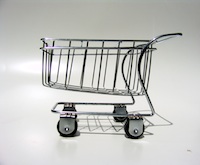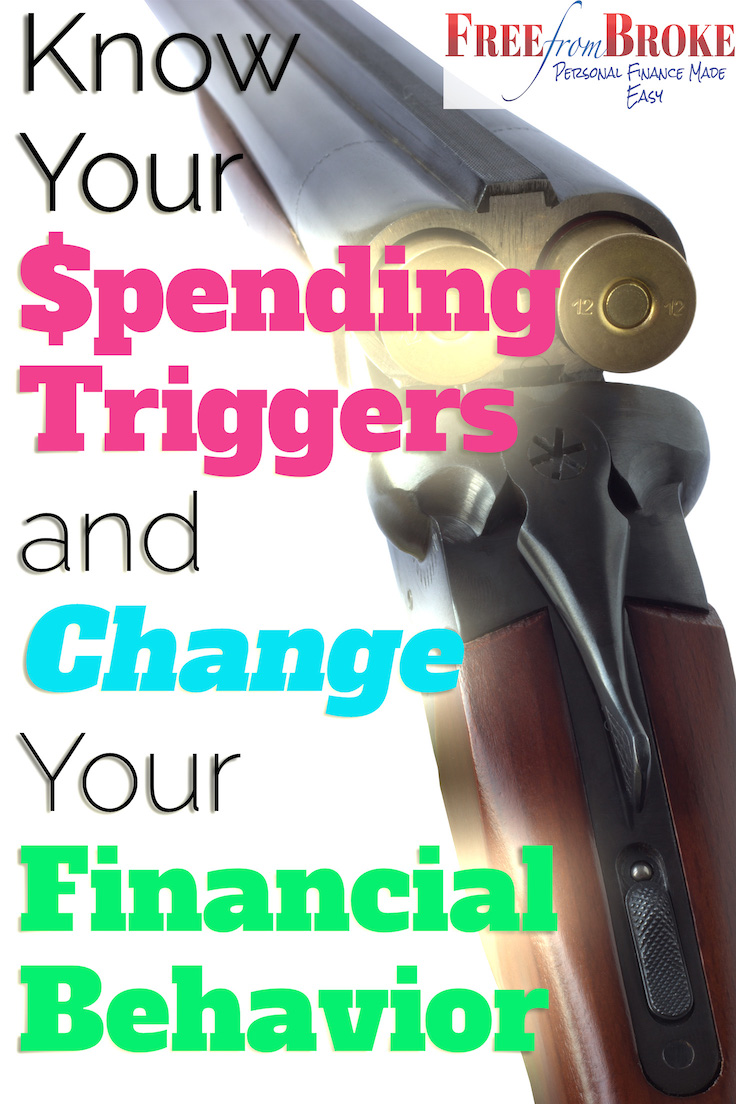Many financial experts advocate knowing your financial personality.
Investopedia defines five major financial personalities: big spenders, savers, shoppers, debtors, and investors. While these financial tests can be entertaining, most people fall into a several categories or none of the categories.
What can be more beneficial than learning what broad category you fit into is to identify your spending triggers and how to deal with them.
For instance, I am generally frugal.
I hang up my clothes rather than dry them in the dryer, my car has over 100,000 miles and is 8 years old, and I barter for services that I need rather than paying for them.
My one spending weakness is food, specifically going out to eat.
Generally, my desire to dine out is motivated by stress. If I have had a busy or chaotic day, there is nothing I want more than to sit in a restaurant, relax, and have someone cook and clean up the mess. To combat this trigger, I try to find other ways to relax, but I also prepare freezer meals so food is already prepared on a crazy day. If I still want the dining out experience, I have learned to prepare ahead by buying deal certificates to our favorite restaurant so we can dine out for less.
By taking these steps, my family has curbed our dining out excursions from several times a week to once or twice a month. I recognized my spending trigger and found solutions for avoiding it or ways to dine out for less.
4 Big Spending Triggers You Need to Know!
The first step to controlling your spending triggers is to recognize them. There are several common spending triggers:
1) I deserve it.
Be careful of this thought process, which goes something like this, “I do everything for everyone else. I should do something for myself” or “I had to work hard this week and put in 10 extra hours at work. I deserve to go skiing (or whatever else your weakness may be).”
2) Everyone else has one.
Call this one keeping up with the Joneses Facebook style. “‘Social networking creates pressure to keep up with the ‘Joneses’ beyond your close neighbors and friends,’ said Kim McGrigg, spokeswoman for the nonprofit credit counseling agency Money Management International. ‘Every day you can hop online and see pictures of people who got a new car or went on vacation; you see them living a lifestyle that’s different from yours’” (Boston.com).
Within the last day on my Facebook feed, I have seen pictures of a friend’s new house that is being custom built and another friend who took her entire family to a major league baseball game. Most people only share the good things in their life on Facebook, and you never know how much debt they have.
3) I have this, so I need that.
You have splurged and bought yourself a new iPhone. Now you have to buy a protective cover and get the latest apps. Otherwise, what is the point of having the iPhone? We fell for this when we bought our car new 8 years ago and paid another $1,000 that we didn’t really have for the rust-proofing and interior water-proofing. After all, we had just bought a new car and wanted to keep it nice.
4) Hurry! Sale ends soon!
Advertisers know that a sense of urgency can seal the sale. You may fall for this strategy when you don’t know if you should buy something or not.
A sister to sale ends soon is for a limited time only. Scarcity is a great way to sell. Often you will buy something you don’t need just because you don’t want to miss out.
Of course, there are many more spending triggers. You will need to take time to sit down and think carefully about what you carelessly spend money on and when you do it. What is your emotional state?
3 Strategies to Handle Your Spending Triggers

Identifying your spending triggers is the most important step. After you have identified them, you can decide how you would like to handle them.
1) Avoid the expense.
Just like recovering alcoholics avoid alcohol, you may choose to avoid buying. In my example, that would mean shunning restaurants entirely. The nice part of taking a cold turkey approach is that eventually, when you adapt to not spending your money in a particular fashion, the struggle disappears. You don’t have to decide if you should spend money or not on a particular item. You just know that you don’t spend money that way anymore.
2) Find a way to indulge for less.
If your weakness is personal care, maybe you can take a class to learn how to do your own upscale manicures, or maybe you can take advantage of daily deal sites to get your hair done for less.
3) Learn to combat the trigger.
Many money triggers are closely related to your emotions. If you learn to recognize the emotional state that leads to overspending, you can take steps to change the emotion or your response to it.
J.D. Roth from Get Rich Slowly says, “When I’m feeling blue, for instance, I have a tendency to buy books and comics or to place an order at Amazon. Because I know this about myself, I’ve learned to recognize the urge when it occurs. If I find myself wanting to browse Amazon just for the sake of shopping, I walk away from the computer. And I avoid bookstores.”
Final Word on Your Spending Triggers
Just because you have a particular spending trigger and a way you respond to that spending trigger doesn’t mean you have to respond the same going forward.
Take the time to identify your spending trigger and develop a set of alternative, positive responses to the trigger. You will be much happier with yourself and feel more in control of your behavior.

Avoiding your spending triggers is a huge key to saving money! The more that we can stay away from those triggers, the better off our finances will be. Luckily, I’m uber cheap now so I don’t really have too many temptations. However, it took me quite a bit of work to get to that point.
Great roundup of behavior and tips!
Knowing yourself and your habits is a great first step to financial success. I don’t have any huge spending problems but I do save a ton. I should loosen up a bit from time to time.
sex offenburgis my favorite place for chatting with hot girls and it is totally free
I’m right there with you on the food trigger. One year I remember pulling my bank statements and being disgusted at how much I spent on food. We (my wife and I) have cut back on it by preparing big meals. For example, last night we made a gigantic pot of homemade chili. Suddenly it was easy to scoop some of that into a container than it was to visit the local Albertsons during lunch hour.
I’m not much of a splurger, but I’ll completely talk myself into a purchase that I probably don’t need to spend as much money on because of quality. It’s rare so I don’t worry about it much.
Food’s a big spending trigger for us as well; and it cascades. To go out to a nice place, we have to get a sitter, and we’re always generous with our sitters (they have our kids after all!), so it ends up being a really costly night just to go out to a nice restaurant. But we like to do so a couple times a month; add in some friends, then the drinks add up as well.
I was about to go shop online. Luckily, I read this instead. It stopped me from spending. ;0) i love eating out. That’s a spending trigger for sure. I enjoy Livingsocial.com. You can go to a nice restaurant for half the price.
I am a sucker for a sale and rewards. I go shopping for clothes and they give you those rewards to lure you back to the store to spend more and I usually fall for the lure, hook, line and sinker! I go back and spend more than I wanted to, but I am not oppose to returning items that were an impulse buy! Since I know those rewards are my trigger, I try to share them with my friends and family to keep myself out of trouble.
Sally Stretton
A friend of mine just bought an iPad and because everyone else with an iPad has a protective cover, she had to buy one as well and she chose an expensive leather-made casing. She really has this tendency to be “in” and I would love for her to read your post, Melissa.
There’s definitely a lot of us who’ll benefit in realizing our own types of spending triggers.
if you bye food for the week day then on the weekend you can go out to eat and not speend that much if you do not save your money you will not have nuch left
You’re so right that spending is often emotional! Restaurants used to be a huge temptation for us as well, but, we’ve quit cold turkey. Now that we know eating out isn’t an option, we’ve become accustomed to it and don’t really miss it all that much. We still go out for special occasions (like birthdays), but otherwise, we’ve decided not to. Hopefully we can keep it up into 2015!
Yeah, food can tug at you in ways other things can’t huh? I know when I’m hungry I don’t make decisions as well. Sometimes you have to take the temptations out of the equation (it’s why I usually won’t touch cookies, otherwise half a box disappears).
Sale ends soon-gets me a lot. I need to stop reading the ads every weekend. I should check them when I need things.
Visit hure frankfurt for your own free sexy chat pleasure with hot young local ladies!